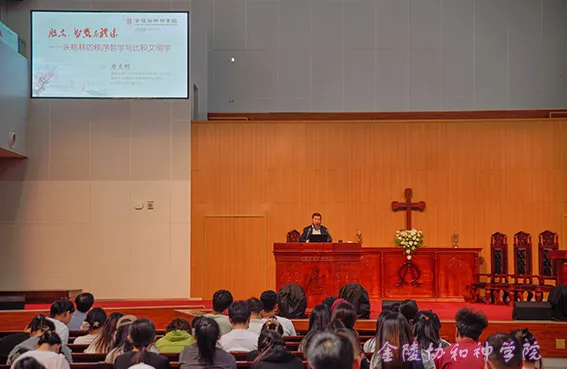On April 30, Nanjing Union Theological Seminary hosted a special lecture titled "Revelation, Wisdom, and Ritual Music—Voegelin's Philosophy of Order and Comparative Civilizational Studies," which compared the differences and commonalities in the concepts of order between Chinese civilization and Christian civilization.
According to the seminary, the lecture was delivered by Professor Tang Wenming, professor and head of the Department of Philosophy at the School of Humanities at Tsinghua University, deputy director of the Tsinghua Institute for Moral and Religious Studies, and secretary-general of the Chinese Confucian Association.
Using the framework of the 20th-century philosopher Eric Voegelin's philosophy of order, Professor Tang systematically analyzed the differences and commonalities in the concepts of order among the three major civilizations of Israel, Greece, and China. He pointed out that the prophets of Israel conveyed divine will through "revelation," Greek philosophers pursued the essence of existence through "wisdom," and Chinese sages reshaped human ethics through "ritual music." These three civilizations respectively represent Israel's pneumatic hierophany, Greece's noetic hierophany, and the more concrete aesthetic hierophany in Chinese civilization.
Professor Tang particularly emphasized the uniqueness of Chinese civilization: the sage-king tradition represented by Confucius and Laozi constructed social order through ritual and music systems rather than religious revelation, establishing a comprehensive educational entity that harmonizes time, place, and human relations. In this tradition, the awakening of a transcendent cosmological consciousness and the awakening of the individual mind are two indispensable dimensions, providing a new pathway for dialogue between Chinese civilization and Christian civilization. Chinese ritual and music civilization, centered on worldly ethics, contrasts with the "transcendence" of Christianity, yet both are dedicated to constructing a harmonious order.












